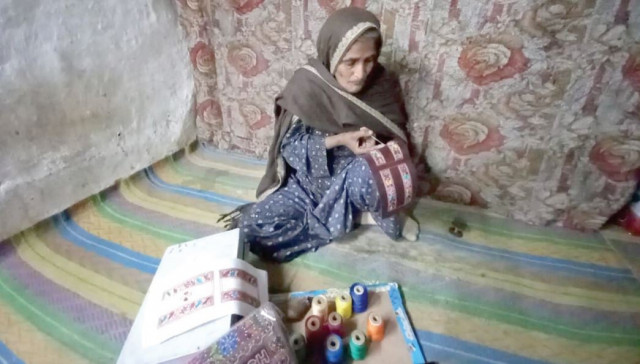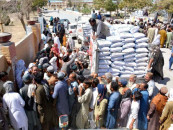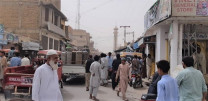E-commerce aids Balochistan’s women
Young entrepreneur’s initiative helps rural artisans’ work find a global audience

When Roz Bibi’s husband passed away in spring of 2016, she had the bleakest picture of what her life ahead was going to look like in the stony desolation of Sibi, Balochistan.
Aged 65-years at the time, no formal education and left with the responsibility of four children, the Domki woman knew she had to be the one to fend for herself and her family.
“An illiterate woman like me has very few avenues of earning a decent living here. But I was lucky to have found a great opportunity that allowed me to use the knowledge and skills I bequeathed from my ancestors to make a respectable income,” said the elderly woman, who’s now part of a team of 150 female artisans selling products via social media.
“I now make around Rs30,000 a month through making and promoting Balochi handicrafts and this opportunity has been my saving grace” she added.
These 150 women, like Roz Bibi, are associated with a digital page called Balochi Online Traditional Shop (BTS), that helps market locally made products to a wider, global audience.
This is the work of a young Sibi entrepreneur, Imran Hara, who has endeavored to enable the people of Balochistan to also profit from the developing e-commerce industry, despite the fact that parts of the province still lack access to internet facilities and other necessities.
Hara had realised that the market for locally produced handicrafts largely existed out of Balochistan, owing to its unique patterns and repeated references— and at times blatant appropriation— in international fashion.
“If people come here every time they want a Balochi handicraft product; it would get quite expensive for them. So now, through BTS we have made it quite easy for people to buy products right from the comfort of their homes,” shared the young entrepreneur.
According to Imran Hara, part of his efforts have been to uplift rural women of Balochistan, like Roz Bibi, who had been long struggling for financial independence.
“The only options they have here are labour intensive jobs that barely pay enough to make a living. On top of that, these women have severe road blocks in terms of access to modern technology, healthcare, education, transport and social protection. So it’s quite hard for them to establish their own businesses, so they are left at the aid of others and forced to live off of charity when their male bread-winner passes away,” he informed, while speaking of the gender gap that segregates employment opportunities in rural Balochistan.
Addressing his brand’s progress, Imran said that initially BTS was not very successful in getting the buyers’ attention.
The reason was that people in Balochistan were not accustomed to online shopping, while people from other parts of Pakistan were not so familiar with Balochistan and its traditional skills.
So, Imran had to advertise this online shop as much as possible. He remained associated with the development sectors and advertised these products anywhere he could, with social media being his primary avenue with the aid of social media activists.
“Today, after many years of hard work, BTS is a successful example of independent entrepreneurship, that has enabled hundreds of rural women to secure financial independence and has also kick-started the growth of ecommerce in Balochistan, against all odds,” Hara told The Express Tribune.



















COMMENTS
Comments are moderated and generally will be posted if they are on-topic and not abusive.
For more information, please see our Comments FAQ